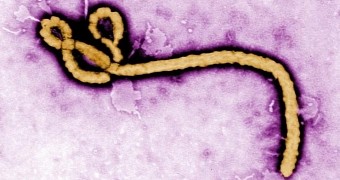Last week, the US Centers for Disease Control and Prevention announced that a patient admitted at the Texas Health Presbyterian Hospital of Dallas towards the end of September had been diagnosed with Ebola.
The man is understood to have contracted the deadly virus while in Liberia, one of the countries affected by the ongoing Ebola epidemic in West Africa. He failed to show any symptoms until he returned to the US.
This past Sunday, Dr. Tom Frieden, the current director of the Centers for Disease Control and Prevention, talked to the press and announced that, unfortunately, the patient's overall condition had gone from bad to worse.
The Ebola patient, identified as Thomas Eric Duncan is said to be in critical condition and, consequently, in intensive care. By the looks of it, there are slim chances that he will make a recovery.
What is being done to help this man?
According to Dr. Tom Frieden, the Ebola patient is not being administered any experimental drugs that might help treat the deadly disease he is suffering from. Thus, supplies of a drug dubbed Zmapp have run out.
What's more, it appears that one other experimental drug developed by Canada's Tekmira Pharmaceuticals Corp is fairly tricky to administer in a safe manner. Hence, the patient is currently not on it.
“As far as we understand, experimental medicine is not being used,” Dr. Tom Frieden said in a statement, as cited by RT. “It’s really up to his treating physicians, himself, his family what treatment to take,” he added.
Potential threat to public health
Information shared with the public says that, the first time this man sought medical help, doctors failed to diagnose him with Ebola and place him in isolation. They merely gave him antibiotics and sent him home.
It was only after his condition took a turn for the worse and the man returned to hospital that he was admitted and isolated from the rest of the patients at the Texas Health Presbyterian Hospital of Dallas.
It is understood that, since the time he landed back in the US until he was hospitalized, Thomas Eric Duncan came into contact with about 114 individuals. Of these, 38 were labeled at risk and observed for an extended period of time, and 10 are now in quarantine.
As explained by specialists with the Centers for Disease Control and Prevention, the Ebola virus spreads by coming into contact with the saliva or other bodily fluids of a person suffering from this disease. As dangerous as this virus is, the Centers reassures that the US is well equipped to handle the situation.
“Ebola can be scary. But there’s all the difference in the world between the U.S. and parts of Africa where Ebola is spreading. The United States has a strong health care system and public health professionals who will make sure this case does not threaten our communities.”
“While it is not impossible that there could be additional cases associated with this patient in the coming weeks, I have no doubt that we will contain this,” Dr. Tom Frieden said in a statement issued last week, shortly after Thomas Eric Duncan was diagnosed with Ebola.

 14 DAY TRIAL //
14 DAY TRIAL //